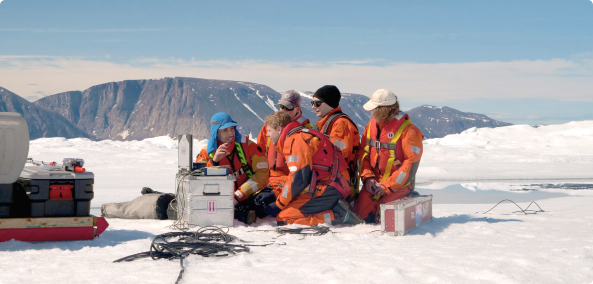Third Laurence Trân Arctic Futures Award Goes to Greenlandic Social Enterprise Supporting Youth
On December 3rd, on the second day of the annual Arctic Futures Symposium, the International Polar Foundation (IPF) and the Trân Family handed out the third Laurence Trân Arctic Futures Award to Siu-Tsiu, a non-profit social enterprise based in Greenland that employs and upskills marginalised young people to help them find work, pursue further education, give them a sense of community and give them a sense of purpose in life.















